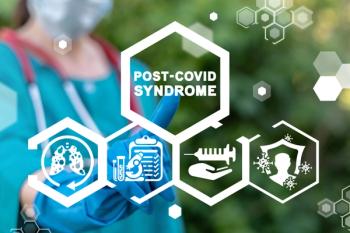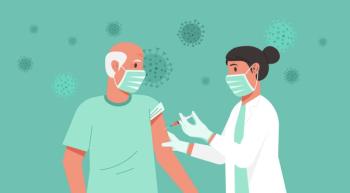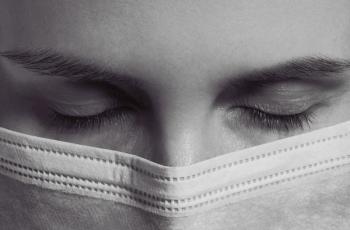
Psychiatry Clerkships During COVID-19: How Medical Schools Are Responding
An announcement from the Association of American Medical Colleges (AAMC) regarding medical student clinical rotations during the COVID-19 pandemic effectively halted medical student education on March 17th.
An announcement from the
It is important to note that with the AAMC’s updated guidelines, each individual school will have to determine where, when, and how students may reengage in direct patient contact. This restart will undoubtedly vary widely from institution to institution as the guidelines encourage schools to consider the impact COVID-19 is having on their institution and what aspects of the health care system are currently functioning at each student’s institution. Still, many third-year medical students are currently unable to engage in their required core clerkships and have already lost one month of clinical experience.
A psychiatry rotation is a core clerkship at every medical school. When deciding how to implement a revised format of the psychiatry clerkship, medical schools have a wide range of options. The psychiatry clerkship does not exist in a vacuum and will need to be coordinated with the other required clerkships at a medical school. While it is still too early to know when clinical students will be allowed to have direct patient contact, many clerkship directors and medical educators are working on how to respond to this situation. Some have already begun participating in telemedicine visits, while others will be slowly re-introduced to clinical sites in the coming months.
Student experience
To get an initial understanding of how different medical schools are responding to this situation, a few medical students in Michigan and Ohio were contacted. The students explained the innovative ways their medical schools are handling the psychiatry clerkship in light of COVID-19.
Wayne State University School of Medicine
For third-year students at
According to students who took the course, educational materials included simulated online cases and videos, for which they were asked to document mental status examinations, differential diagnoses, and treatment plans. They then discussed these cases in small groups over Zoom with the clerkship director. For one early assignment, students were asked to rethink a real case seen on their neurology rotation from a psychiatric perspective. Two or three times per week, the entire cohort met on Zoom to clarify assignments and watch lectures. These included talks by subspecialty faculty, a trauma psychologist, and the department’s Chief Resident, who also led a “choose your own adventure” decision-making case with students. Importantly, students discussed COVID-19’s impact on mental health. They wrote reflections on how a psychiatric diagnosis might affect an individual’s response to the crisis and learned what psychiatry residents were doing to support their colleagues in other fields. As all learning was remote, students will be required to participate in two weeks of clinical psychiatry experiences at some point during their fourth year.
Fourth-year electives are also being adapted at WSUSOM. In addition to didactics and team meetings, the Child and Adolescent Psychiatry elective has incorporated telemedicine in a significant way, encouraging student participation in follow-up visits conducted over Zoom with fellows. The structure of future rotations, including the core clerkship for incoming third-year students in July, will continue to evolve as the situation permits.
Michigan State University College of Osteopathic Medicine
At
Some hospitals plan to utilize telehealth; however, not all hospitals in the MSU Statewide Campus System can provide that opportunity. As of the writing of this article, there are no plans to make participating in telehealth a requirement of clerkships. Meanwhile, second-year students wait to see what will happen to them. Prometric testing centers, where the USMLE Step 1 and COMLEX exams are taken, have closed around the country until May 1. With MSUCOM scheduling every student to take board exams in the months of May and June, many students are anxious and concerned about further delays in the reopening of Prometric testing centers.
Ohio State University College of Medicine
Third-year clerkships at The Ohio State University College of Medicine (OSUCOM) follow a unique schedule with clinical rotations arranged into 16-week “rings” and multiple 2-4 week rotations in various specialties and clinical experiences. Cinical rotations were suspended on March 14th, leaving some medical students with no psychiatry experience. To complete the academic year and advance third-year medical students as scheduled, various online alternatives were created depending on specialty.
To fulfill psychiatry requirements, students completed case-based online learning, OSUCOM specific learning modules on topics ranging from firearm safety to ECT, and readings from the DSM-V. Weekly small group sessions continued in virtual format. In addition, a minimum of 2 weeks of clinical psychiatry experiences will be required, which may be fulfilled upon return to the clinical environment through fourth-year elective rotations if necessary. Students were given the opportunity to complete the NBME Shelf exam as scheduled or to defer the exam until after completing additional clinical experiences.
At this time, both third- and fourth-year OSUCOM students are anticipated to return to the clinical environment in June, which would be a delayed start by 1 month. Students are encouraged to use the month of May to complete an online-based elective or study for board exams. Upon return, both rising third- and fourth-year medical students are anticipated to work at full capacity with minimal adjustments made to student roles.
Conclusion
Medical students are among the people fortunate enough to be able to continue working from home. Video conferences with educators and peers, combined with multiple online platforms for case-based exercises and learning modules seem to be how most medical schools are continuing education. Even though telepsychiatry is on the rise, there are still barriers to having medical students take part in these visits now to fulfill psychiatry clerkship requirements.
While traditional methods of completing a core psychiatry clerkship, such as an inpatient or consultation-liaison psychiatry rotation, are almost impossible to complete on a fully virtual basis, the steps that medical schools are taking to keep students engaged should be applauded. The combination of extended stay-at-home orders, fear of the virus itself, and economic instability that is already starting to become evident has the potential to cause wide reaching mental health challenges in the very near future. Continuing psychiatric training for medical students at this time is essential, especially since this event will likely only increase the demand for psychiatric services.
Disclosures:
Mr Hanslits is an MD candidate, University of Michigan Medical school; Dr Cenker is an MD candidate, The Ohio State University College of Medicine; Mr Mancine is a DO candidate, Michigan State University College of Osteopathic Medicine; and Ms Utter is an MD candidate, Wayne State University School of Medicine. They report no conflict of interest concerning the subject matter of this article.
Acknowledgments-The authors thank Michelle Riba, MD, MS, and David Belmonte, MD, at the University of Michigan Medical School; Richard Balon, MD, at Wayne State University School of Medicine; Meera Menon, MD, and Julie Niedermier, MD, at The Ohio State University College of Medicine; and Jed Magen, DO, MS, at Michigan State University College of Osteopathic Medicine.
References:
1. Association of American Medical Colleges.
2. Whelan A, Prescott J, Young G, Catanese VM, McKinney R.
Newsletter
Receive trusted psychiatric news, expert analysis, and clinical insights — subscribe today to support your practice and your patients.







